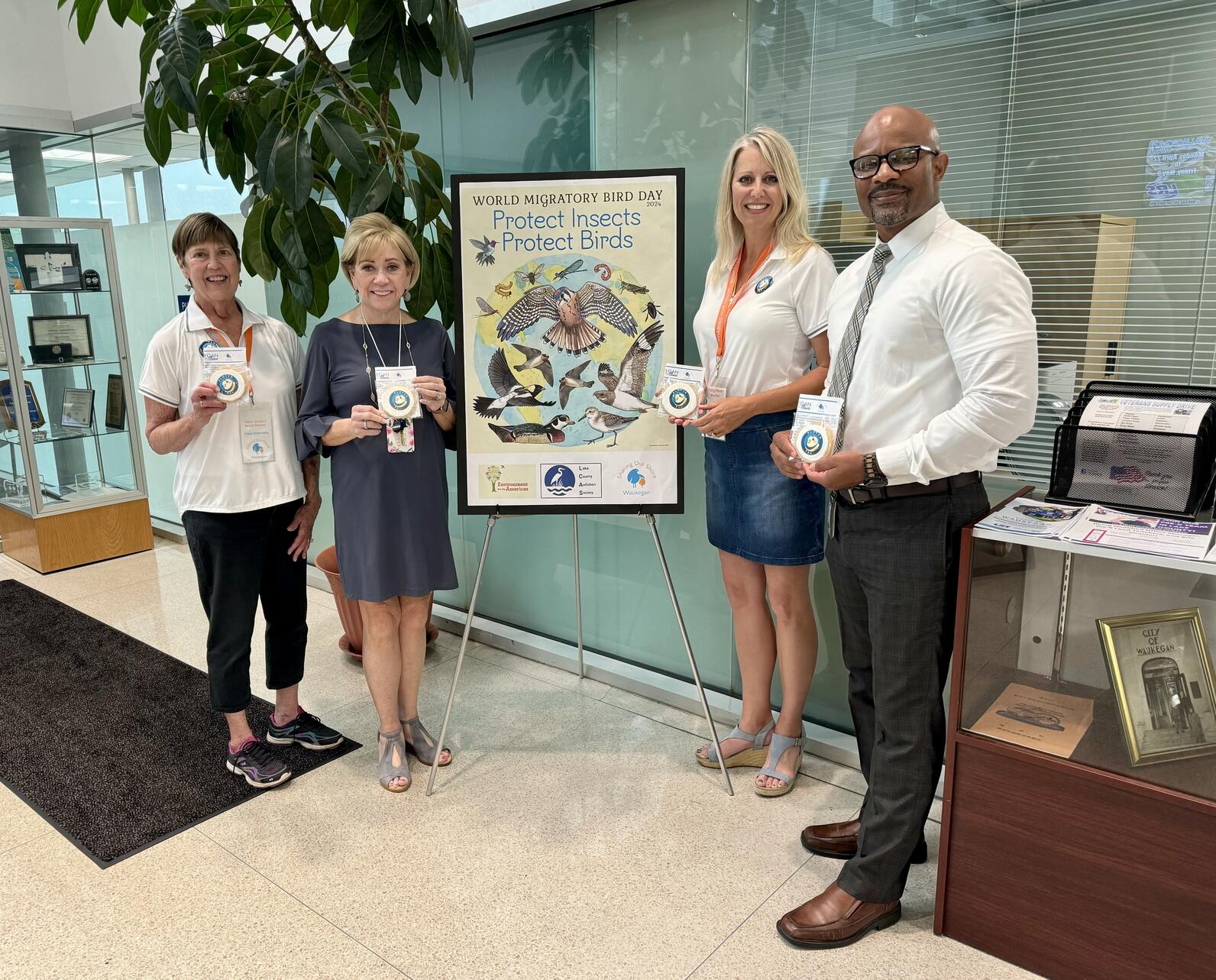As the first wave of fall migrants arrived on the North Carolina coast this month, Audubon biologists got a brief glimpse of a celebrity shorebird at Masonboro Inlet. Blaze, a hand-reared Piping Plover from Waukegan, Illinois on the shores of Lake Michigan, is back for the second year in a row at the inlet, which is monitored regularly by Audubon staff.
Piping Plovers are tiny, weighing just as much as a few quarters, and their migration routes are long and perilous. For the people who raised and released Blaze on Lake Michigan, finding out that she successfully traveled halfway across the country to protected habitat in North Carolina was welcome news.
“We were so excited to confirm with the North Carolina team that Blaze arrived safely at Masonboro Inlet,” said Carolyn Lueck, a plover monitor and Lake County Audubon Society board member. “The moment we confirmed her band, H4, we started cheering.”
Piping Plovers are extremely small but feisty shorebirds that live along sandy beaches. They are federally threatened on the Atlantic coast but are classified as endangered in the Great Lakes region due to industrialization and development decreasing suitable habitat in the early 1900s.
Thanks to Audubon’s hemispheric monitoring efforts, we’ve been able to protect habitat and monitor Blaze and other Piping Plovers on both sides of their migration journeys.
Long Journey
Blaze has already been through a lot as a one-year-old bird. In the spring of 2023, she was abandoned as an egg on the shores of New York and taken to the University of Michigan Biological Station, a captive rearing facility, where she was hatched and raised. Blaze and three other chicks were then released on the shores of Lake County—among the first hand-reared chicks to be released in Illinois from the station.
In the fall of 2023, Blaze migrated to North Carolina, where our coastal team first spotted her in mid-September at Masonboro Inlet. She returned to Waukegan this spring and successfully raised three chicks with Pepper, another captive-reared bird released with Blaze in 2023. Now, she’s back in North Carolina for the winter.
Lueck helps lead the Sharing our Shore program for Lake County Audubon in Illinois, which just celebrated a five-year partnership with the City of Waukegan to protect the habitats these birds rely on.
By collaborating with the city, they have been able to lead public education campaigns about the importance of sharing the shore, monitor hand-reared and re-introduced plover chicks on the shores of Lake Michigan, and have proven beyond a doubt the value of protected areas for birds and people.

Blaze’s story is just one example of the importance of monitoring and conservation on both sides of a birds' migration journey. Lake County Audubon Society in Waukegan monitors Blaze and other Piping Plovers during the breeding season, while we monitor North Carolina’s shores for Piping Plovers in the winter.
Without natural inlets and Audubon sanctuaries in Illinois, North Carolina, and beyond, these birds wouldn’t have places to rest, nest, or overwinter.
“No one else would be monitoring for Piping Plovers in these areas if we didn’t,” said Lindsay Addison, coastal biologist at Audubon North Carolina. “We monitor the areas around Wilmington as part of ongoing shorebird surveys, along with our regular work to protect and manage shorebird habitat, including at the south end of Wrightsville Beach.”
Share the Shore All Year Long
Audubon's data shows that it’s not unusual for wintering Piping Plovers to stay at only one inlet, demonstrating the importance of these places in supporting individual plovers year after year.
That’s why it’s important to share the shore even during the fall and winter, because birds like Blaze will be returning to our shores and need space to rest and forage before returning to their breeding grounds in the spring. Keeping dogs on leashes and preventing dogs—and children!—from chasing birds are two important steps anyone can take to help birds.
So, remember to share the shore this fall and winter as more shorebirds make their way to the North Carolina coast. If you come across a bird with a band, let us know on Facebook, and Instagram and report your sightings to the USGS bird banding lab.





